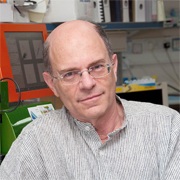Yosef Shiloh

Affiliations
Department of Human Molecular Genetics and Biochemistry, Sackler School of Medicine, Tel Aviv University
Biography
Prof. Yosef Shiloh is Myers Professor of Cancer Genetics and a Research Professor of the Israel Cancer Research Fund, at the Sackler School of Medicine, Tel Aviv University. He obtained his B.Sc. degree at the Technion in Haifa, and Ph.D. in Human Genetics at The Hebrew University of Jerusalem. He trained further at Harvard Medical School, the University of Michigan, New York University Medical Center, and was a Fogarty Fellow at the U.S. National Institutes of Health. He is a member of The Israel National Academy of Sciences and Humanities and won the 2005 EMET Prize in Life Sciences, the 2011 American Association of Cancer Research G.H.A. Clowes Award, the 2011 Israel Prize in Life Sciences and the 2015 Olav Thon International Award in Natural Sciences and Medicine. He is interested in maintenance of genome stability, with special focus on the role of genome instability in neurodegeneration and aging.
Abstract
Ataxia-telangiectasia: crosstalk between bench and bedside
Yosef Shiloh
Efforts to understand rare genetic diseases have led to the identification of novel physiological functions. Ataxia-telangiectasia (A-T) is a prime example. A-T is an autosomal recessive human disorder characterized by progressive cerebellar degeneration, immunodeficiency, genome instability, extreme radiation sensitivity, and cancer predisposition. The responsible gene, ATM (A-T, mutated) was identified in our lab and subsequently, the catalytic activity of its protein product, ATM, was identified in our and other labs as that of a protein kinase.
Upon encountering genotoxic stress ATM orchestrates a vast signaling network known as the DNA damage response (DDR), by phosphorylating key players in its various branches. Evidence suggests that ATM is also involved in other signaling pathways that are not directly related to the DDR. Identification of the ATM function whose loss leads to the neurodegeneration in A-T patients is a cardinal, ongoing question.
Based on our and others’ work, we propose that, beyond the activation of the DDR following acute DNA damage, ATM continuously functions in other cellular responses to genotoxic stresses that accompany normal cellular metabolism. We suggest that the loss of this extended function of ATM in preserving genome integrity in the face of daily genotoxic stress is the major cause of the progressive cerebellar degeneration in A-T. A-T is thus an example of the contribution of the bench-to-bedside crosstalk to new biomedical insights.
Contact
Location
Raya and Josef Jaglom Auditorium, next to George S. Wise Senate Building, Tel Aviv University Campus

